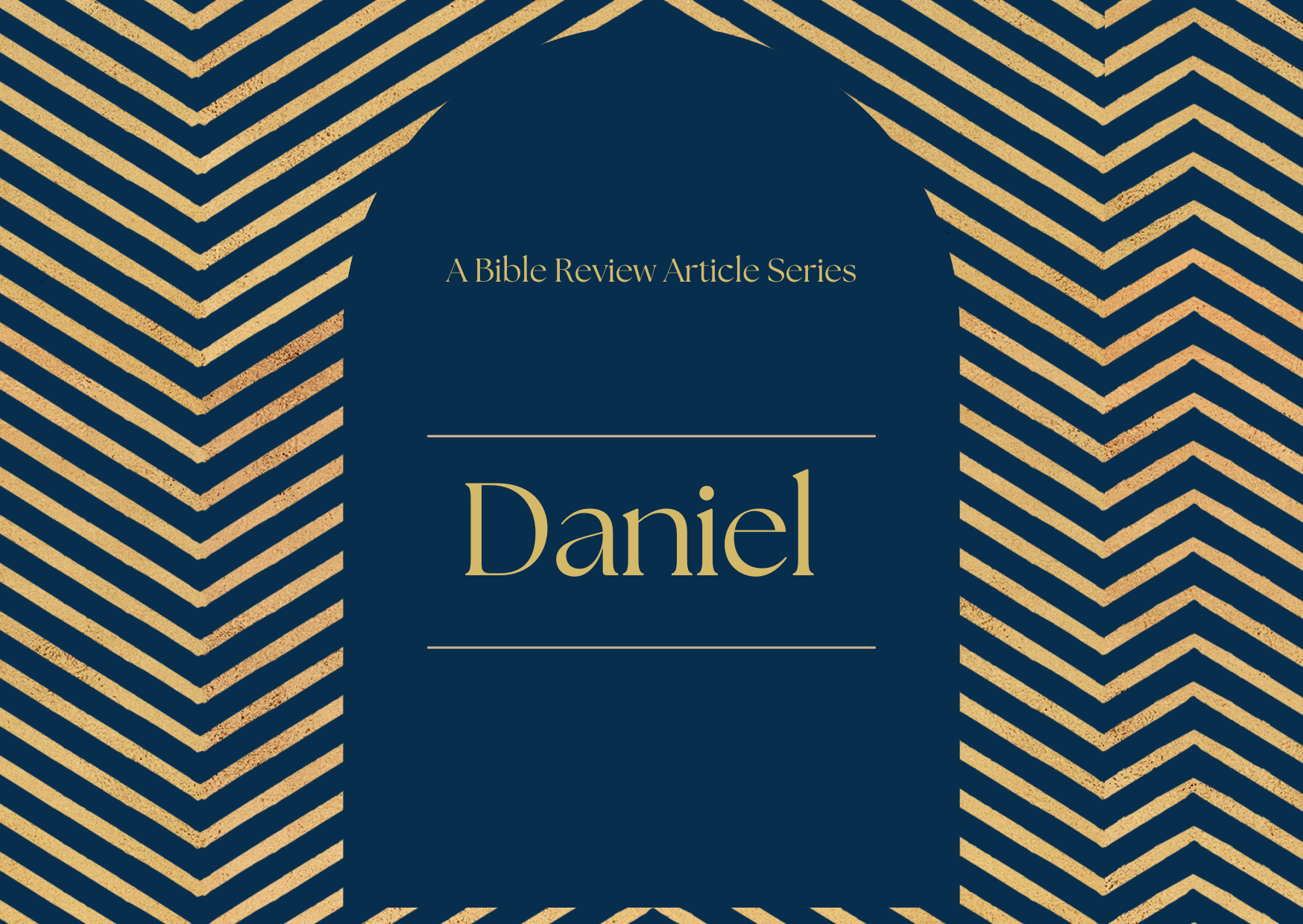
Daniel:
A Quick Overview
by Milo





Follow us on social media for
FREEBIES and New Article releases.
OR
Sign Up for Our Freebie Email List and Have Freebies Delivered Directly To Your Inbox
Introduction
The Book of Daniel is a combination of historical narrative and prophetic visions, highlighting God’s sovereignty and faithfulness to His people.
Authorship and Date
The book is traditionally attributed to Daniel, a Jewish exile in Babylon, and is believed to have been written in the 6th century BC.
Purpose and Themes
Daniel’s purpose is to demonstrate God’s control over history and His ability to deliver His faithful people. Key themes include:
- God’s Sovereignty: God’s authority over nations and kings.
- Faithfulness and Persecution: Examples of steadfast faith in difficult circumstances.
- Prophecy of Future Kingdoms: Foretelling world empires and the coming of God’s kingdom.
- End Times Visions: Prophecies about the end of the age and the return of the Messiah.
Key Verses
- Daniel 1:8 - "But Daniel resolved not to defile himself with the royal food and wine."
- Daniel 2:44 - "The God of heaven will set up a kingdom that will never be destroyed."
- Daniel 3:17-18 - "The God we serve is able to deliver us... But even if He does not, we want you to know, Your Majesty, that we will not serve your gods."
- Daniel 6:22 - "My God sent His angel, and He shut the mouths of the lions."
- Daniel 12:3 - "Those who are wise will shine like the brightness of the heavens, and those who lead many to righteousness, like the stars forever and ever."
Summary of Content
Daniel contains accounts of his faithfulness in exile and visions revealing God’s plan for future kingdoms and the end times.
Structure of Daniel
Chapters 1-6: Historical Accounts
- Stories of Daniel and his companions in Babylon.
Chapters 7-12: Prophetic Visions
- Visions of future kingdoms and the final victory of God’s kingdom.
Application and Relevance
The Book of Daniel speaks to the **power of faith and steadfastness in the face of adversity**. As Daniel was taken from his home and placed in exile, his unwavering commitment to God offers a powerful example for believers today. From the fiery furnace to the lion's den, Daniel's life demonstrates the rewards of trusting in God's sovereignty, even in the most hostile environments.
Additionally, Daniel is filled with **prophecies** that speak of God's ultimate triumph over earthly kingdoms and His eternal kingdom that will never be destroyed. This message is crucial for modern believers, who are also living in a world where they may face challenges to their faith. Daniel encourages us to remain firm in our convictions and trust in God's eternal plan for His people, knowing that His kingdom is unshakable.
Connections to Other Books
The Book of Daniel connects with both the Old and New Testaments, particularly in its **prophetic visions**. Daniel’s visions, especially the prophecy of the **four kingdoms** (Daniel 2) and the **seventy weeks** (Daniel 9), are foundational for understanding other prophetic books like **Revelation**. The vision of the beastly kingdoms in Daniel 7, for example, has parallels in Revelation’s description of the **end times** and the **rise of the Antichrist** (Revelation 13).
Daniel’s story also parallels other books like **Esther**, where God’s people are living in exile under foreign rule. The **faithfulness of Daniel** and his companions in the face of pagan rulers encourages Christians to **stand firm in their faith** regardless of their surroundings. Moreover, Jesus Himself referred to the **“abomination of desolation”** in Daniel 9:27, showing the continuity between the Old and New Testaments in terms of God's overarching plan of salvation.
Study Questions
- 1. What were the main reasons Daniel and his friends stood firm in their faith while in exile?
- 2. How do the visions of Daniel point to the coming of Jesus Christ?
- 3. What do the prophecies in Daniel about the future kingdoms reveal about God’s plan for world history?
- 4. How does Daniel’s faithfulness challenge you in your own walk with God?
- 5. What is the significance of God’s protection of Daniel in the lion’s den?
- 6. How does Daniel 9's prophecy of the "seventy weeks" shape our understanding of God's redemptive plan?
- 7. How does the "abomination of desolation" prophecy relate to the end times in both Daniel and Revelation?
- 8. What does the story of the fiery furnace teach about **God’s deliverance** in times of trial?
- 9. How can we apply the lessons of trust and faith from Daniel to our daily challenges?
- 10. How does Daniel’s role as a government official in Babylon influence the way we view **Christian involvement in politics** and society?
Frequently Asked Questions
- 1. Who wrote the Book of Daniel?
Daniel, a Jewish exile, wrote the book in the 6th century BC. The book contains both historical narrative and apocalyptic prophecy.
- 2. Why is Daniel in the Old Testament important?
Daniel is important because of his faithfulness to God in exile and the prophecies he received regarding future kingdoms and the coming Messiah.
- 3. What does the story of the fiery furnace teach us?
The story teaches the importance of **standing firm in faith** even when faced with persecution, and that God will be with us through trials.
- 4. What is the meaning of the "four beasts" in Daniel 7?
The four beasts represent four kingdoms that would rise to power before the establishment of God's eternal kingdom.
- 5. What is the significance of Daniel 9’s “seventy weeks” prophecy?
The “seventy weeks” prophecy outlines the timeline of Israel’s redemption and the coming of the Messiah.
- 6. What happened to Daniel in the lion’s den?
Daniel was thrown into the lion's den for continuing to pray to God, but God protected him, showing His power to save those who remain faithful.
- 7. How is the Book of Daniel connected to the Book of Revelation?
Daniel’s visions of beasts, kingdoms, and the end times are echoed in Revelation, particularly regarding the **rise of the Antichrist** and the final triumph of God.
- 8. Why did Daniel refuse to eat the king's food?
Daniel refused the king's food because it was **against Jewish dietary laws** and because he wanted to honor God with his actions.
- 9. How does Daniel serve as a role model for Christians today?
Daniel’s unwavering faith in God, even in a hostile environment, challenges believers to remain faithful and trust in God’s ultimate sovereignty.
- 10. What is the meaning of the "abomination of desolation" in Daniel 9:27?
This prophecy refers to the desecration of the temple, which is later referenced by Jesus in Matthew 24:15 as a sign of the end times.
Daily Reading Plan
| Day |
Reading |
| Day 1 | Daniel 1 |
| Day 2 | Daniel 2-3 |
| Day 3 | Daniel 4-5 |
| Day 4 | Daniel 6-7 |
| Day 5 | Daniel 8-9 |
| Day 6 | Daniel 10-11 |
| Day 7 | Daniel 12 |

More Bible Overviews
Genesis Overview
Exodus Overview
Proverbs Overview
Ecclesiastes Overview
Isaiah Overview
Daniel Overview
Matthew Overview
Gospel of John Overview
Acts Overview
Romans Overview
1 Corinthians Overview
Revelation Overview
Freebie Offers
Sign Up for Our Freebie Email List and Have Freebies Delivered Directly To Your Inbox
Recommended Reading
Feeding Your Spiritual Growth: Best Online Bible Study Platforms
Strengthen Your Spirit: Impactful Bible Study Topics for Believers
Find Your Voice: Expressive Church Journal Prompts for Christians
Journey to Enlightenment: Best Bible Study Tools for Growth
From Busyness to Fruitfulness: A Biblical Approach to Time Management (Part 1)
From Busyness to Fruitfulness: Biblical Strategies for Effective Time Use (Part 2)
SOAP Bible Study and Other Study Methods: Which One is Right for You?
How to Use the SOAP Bible Study Method for a Deeper Walk of Faith
How to Study the Psalms Using the SOAP Method
Applying Biblical Wisdom to Financial Decision-Making
Visit Us on Pinterest









